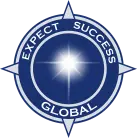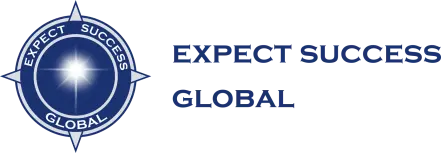
What is an Executive Coach?
An executive coach is a professional who helps senior leaders and high-level executives develop their leadership skills and overcome their biggest challenges. They work closely with their clients to create a coaching relationship focusing on personal development, leadership competencies, and goal achievement.
Through coaching engagements, they support executives in identifying their blind spots, enhancing their communication skills and styles, and finding strategies to improve their work-life balance. By leveraging their expertise and experience, executive coaches help their clients navigate complex business strategies, develop effective leadership strategies, and achieve higher success.
Ultimately, the purpose of an executive coach is to provide guidance, support, and accountability to executives, helping them unlock their potential and drive positive change in their personal and professional lives.
Benefits of Hiring an Executive Coach
Hiring an executive coach can have numerous benefits for both individuals and their companies. By investing in executive coaching, individuals can improve their leadership skills, enhance their communication abilities, manage their time more effectively, make better decisions, and achieve a healthier work-life balance.
One of the primary benefits of executive coaching is the development of leadership skills. Coaches work with individuals to identify and address their blind spots, making them more aware of their strengths and weaknesses as leaders. Individuals can enhance their leadership competencies through customized coaching engagements and learn strategies to overcome their biggest challenges.
Executive coaching also plays a crucial role in improving communication within an organization. Coaches help individuals understand their communication styles and identify areas for improvement. Individuals can effectively convey their messages and connect with their team members by improving their listening skills.
Time management is another area where executive coaching proves beneficial. Coaches help individuals understand their priorities, set realistic goals, and develop strategies to manage their workload more efficiently. This leads to increased productivity and a reduction in costly mistakes.
Executive coaching also addresses the issue of work-life balance. Individuals can develop strategies to manage their busy schedules better and prioritize their personal lives by working with a coach. This results in a healthier and more balanced approach to work.
The benefits of executive coaching extend beyond individual growth, as companies also benefit from investing in coaching programs. Organizations create a positive and high-performing environment by developing a strong corporate culture, improving productivity, increasing profits, strengthening communication, and boosting company morale.
In conclusion, hiring an executive coach can have numerous benefits for both individuals and companies. Individuals can achieve personal and professional growth by improving leadership skills, communication, time management, and work-life balance. Simultaneously, organizations benefit from a more productive workforce and a positive and thriving corporate culture.
Identifying Your Coaching Needs
Before embarking on the journey of finding an executive coach, it is crucial to identify your coaching needs. Start by reflecting on your current leadership challenges and areas for improvement. Consider your professional and personal goals, and think about the specific skills and competencies you would like to develop.
As a leader, assessing your strengths and weaknesses will help you find a coach to effectively address your blind spots and support your growth. Additionally, consider the coaching relationship you seek – whether it be more directive or collaborative- and the desired outcomes of the coaching engagement. By clarifying your needs upfront, you can find a coach who aligns with your goals and has the expertise to lead you toward success.
Assessing Your Current Leadership Style
When assessing your current leadership style, reflecting on various skills that contribute to effective leadership is essential. These skills include problem-solving abilities, teaching abilities, and listening skills.
Problem-solving skills are essential for leaders to identify and resolve challenges or obstacles. Effective leaders can think critically, analyze situations, and develop innovative solutions. This skill enables them to make informed decisions and guide their teams towards success.
Teaching abilities also play a crucial role in leadership. Being able to educate and mentor team members fosters growth and development, as well as ensures the transfer of knowledge and skills. This empowers employees to reach their full potential and contribute effectively to the organization.
Listening skills are another critical aspect of leadership. Influential leaders actively listen to their team members, seeking to understand their perspectives and concerns. This promotes open communication and trust within the team, enhancing collaboration and problem-solving.
Overall, reflecting on problem-solving abilities, teaching abilities, and listening skills enables leaders to assess their current leadership style. By continually developing and refining these skills, leaders can enhance their effectiveness and drive success within their teams and organizations.
Analyzing Your Personal Development Goals
When it comes to personal development, it is vital to analyze and assess your current skills and areas for improvement as a leader. Reflecting on your personal development goals can help you identify the specific areas you would like to grow and improve upon.
Consider the challenges you are currently facing in your business or career. Are there specific leadership competencies or skills you need to enhance to overcome these challenges?
Next, define your specific coaching goals. For example, if you struggle with communication skills, your goal might be to enhance your communication style or improve your listening skills. If work-life balance is a challenge, you might set a goal to develop strategies to achieve a better balance between your personal and professional life.
When setting your goals, it is essential to consider what success would look like after 3-6 months of coaching. What metrics or outcomes indicate that you have achieved your goals? This could include improved business metrics, a more cohesive and productive team, or a better work-life balance.
By analyzing your personal development goals and setting specific objectives, you can maximize the benefits of executive coaching and accelerate your growth as a leader.
Defining Leadership Competencies to Develop
When looking for an executive coach, it’s essential first to define the leadership competencies you want to develop. These competencies will serve as the foundation for your coaching journey and guide you in selecting the right one.
Some key leadership competencies include problem-solving skills, critical-thinking skills, teaching abilities, listening skills, coaching skills, emotional intelligence abilities, and basic knowledge of psychology and human behavior. These competencies are crucial for effective leadership and can significantly impact your success as a senior leader.
You can address your current challenges and cultivate the skills necessary for future growth by identifying specific leadership competencies you wish to enhance. Assessing your strengths and weaknesses in these areas is vital in finding an executive coach who can help you navigate and overcome your most significant leadership challenges.
Once you have defined your leadership competencies, you can focus your search on executive coaches specializing in these areas. This ensures that the coaching relationship and engagements align with your specific needs and desired outcomes. Ultimately, the right executive coach will guide you through a process tailored to your unique goals, allowing you to develop the leadership qualities necessary for continued success.
Analyzing Your Blind Spots and Challenges
To reach your full potential as a senior leader, you must identify and address any blind spots or challenges holding you back in your professional life and business. Blind spots are areas where you may lack awareness or understanding, hindering your ability to make informed decisions and achieve your goals.
Start by taking the time to reflect on your professional life and business. Consider areas where you may be facing challenges or experiencing difficulties. Are there any patterns or recurring issues that you have noticed? Are there specific skill sets or knowledge areas that you feel need to improve?
Next, think about where you may be missing critical information or insights. Are there any areas where you could benefit from external perspectives? An executive coach can provide valuable insights and guidance, helping you gain a fresh perspective and overcome any blind spots.
Working with an executive coach can be highly beneficial as they can help you analyze your blind spots and challenges in a systematic and structured manner. They can provide you with the expertise and guidance needed to identify areas for improvement, develop action plans, and track your progress.
By taking the time to analyze your blind spots and challenges and seeking the assistance of an executive coach, you can enhance your leadership abilities and achieve greater success in your professional life and business.
Selecting a Coach
Choosing the right executive coach is crucial for your development as a senior leader. With numerous executive coaches and coaching services available, finding the best fit can be daunting. However, there are certain factors to consider that can help you make an informed decision.
Take the time to thoroughly research potential coaches, considering their experience, coaching style, and track record. Engaging in interviews or consultations with prospective coaches is also important to assess their compatibility with your needs and goals.
By carefully selecting someone who aligns with your objectives and has the necessary expertise, you can embark on a coaching journey to support your growth and navigate leadership challenges confidently.
Doing Research to Find Potential Coaches
When looking to find an executive coach, it is vital to do thorough research to ensure you find the right fit for your leadership development journey. There are several potential sources for finding executive coaches, and each can provide valuable insights and referrals.
One of the best ways to start your search is by reaching out to colleagues, particularly those in leadership positions or who have previously engaged with an executive coach. They can provide recommendations based on their experiences and help you find someone aligning with your leadership style and goals.
Another valuable resource is Human Resources leads or managers within your organization. They may have suggestions or connect you with executive coaches who have worked with employees in similar roles or faced similar challenges.
In addition, researching coaching certificate providers like the International Coaching Federation can provide a list of certified coaches. These organizations often have directories that allow you to filter and search for coaches based on their specific skills, experience, and philosophy.
Doing thorough research allows you to find potential coaches who specialize in the specific areas you want to develop. It also helps you understand their coaching style and approach, ensuring a successful coaching relationship. Finding the right coach can maximize your personal development, address blind spots, and overcome your biggest leadership challenges.
Evaluating Coaching Services Offered by Prospective Coaches
When searching for an executive coach, evaluating the services offered by prospective coaches is essential to ensure they align with your specific needs and goals. The coaching industry provides various services, including career, executive/business, life, and leadership development.
Career coaching focuses on helping individuals navigate their career paths, set goals, and make informed decisions about their professional development. This type of coaching can be especially beneficial for those seeking career transitions, advancement, or skill enhancement.
Executive/business coaching is tailored to senior leaders and focuses on enhancing leadership skills, addressing challenges, and developing effective business strategies. This type of coaching is ideal for high-level leaders looking to improve their leadership competencies and overcome their biggest challenges.
On the other hand, life coaching is a more holistic approach that covers various aspects of an individual’s personal life, such as relationships, work-life balance, and personal development. It can be beneficial for those seeking overall personal growth and improvement.
Leadership development coaching is specifically designed to enhance leadership capabilities and foster the growth of an entire team. This focuses on improving communication skills, developing effective communication styles, and achieving business metrics.
When evaluating coaching services, it’s essential to consider your specific needs and goals as a coachee. Assess whether the prospective coach’s expertise and experience align with the services you seek. You can ensure a more effective coaching engagement by choosing someone who specializes in the area that resonates most with your needs.
Looking at the Coaching Philosophy of Potential Coaches
When searching for an executive coach, it is crucial to consider their coaching philosophy to ensure it aligns with your needs and goals. Their philosophy provides valuable insight into their approach and methods, shaping the coaching relationship and determining its effectiveness.
Understanding a coach’s philosophy allows you to gauge whether their style and beliefs resonate with your own. It helps you assess whether their methods will benefit your personal and professional growth. Are they focused on achieving immediate results or prioritizing long-term development? Do they emphasize a collaborative approach or a directive one?
When evaluating a coach’s coaching philosophy, key factors include their beliefs on leadership development. Do they view leadership as a fixed set of skills or as a continuous journey of growth? Do they emphasize self-awareness and personal transformation? Additionally, consider their approach to addressing individual challenges. Are they solution-focused, helping you overcome obstacles, or do they prioritize the exploration of underlying beliefs and blind spots?
By considering their philosophy, you can ensure alignment between their approach and your specific needs and goals. This alignment enhances the coaching process and increases the likelihood of achieving meaningful results. Therefore, take the time to assess a potential coach’s philosophy to find the one that resonates best with your desired outcomes.
Verifying Credentials and Hours of Coaching Experience
When selecting an executive coach, verifying their credentials and hours of coaching experience is crucial. This step helps ensure that you work with a competent, experienced professional who can provide effective support.
In the coaching industry, there is a lack of regulation, meaning that anyone can claim to be a coach without formal qualifications or training. Therefore, you must investigate their background and experience thoroughly.
Consider the number of hours of coaching experience they have accumulated. Coaching is a skill that is refined over time, and an experienced coach is more likely to have a deep understanding of the process and be able to navigate complex coaching engagements effectively.
Gather testimonials from former coaching clients to gain insight into the coach’s ability to deliver results. Real-world experience, as demonstrated by success stories and positive feedback, can be a powerful indicator of effectiveness.
It is important to remember that coaching involves a personal and confidential relationship. Therefore, when selecting an executive coach, trust your instincts and choose someone whose expertise, leadership, and perspective on executive coaching align with your needs and aspirations. By carefully considering all these factors, you can maximize the value and impact of your engagement.
Assessing Testimonials On Prospective Coaches
When considering hiring a coach, testimonials can be invaluable in providing insights into their effectiveness and compatibility with your needs. However, not all testimonials are created equal, and it’s essential to assess them critically to ensure you’re making the right decision.
Firstly, look for specificity in the testimonials. Vague statements like “great coach” or “very helpful” may not offer much depth. Instead, focus on testimonials that highlight specific outcomes or areas of improvement attributed to the coach’s guidance. This specificity indicates a genuine impact and can give you a clearer picture of what to expect.
Furthermore, consider the credibility of the source providing the testimonial. Testimonials from individuals or organizations with a similar background or industry as yours can carry more weight, as their experiences may be more relevant to your own.
Lastly, don’t hesitate to contact the individuals providing the testimonials for further clarification or to ask specific questions about their experience. Their responses can offer valuable insights and help you make a more informed decision. However, remember that coaching can be highly personal and private, and some people may not feel comfortable discussing the specifics of what a coach has helped them through.
By carefully assessing testimonials, you can ensure you hire someone who aligns with your goals and can genuinely support your growth and development.
Establishing a Successful Relationship With an Executive Coach
Finding the right executive coach can be a game-changer for senior leaders seeking to enhance their leadership skills and navigate their biggest challenges. However, the key to maximizing the benefits of executive coaching lies in establishing a successful coaching relationship.
Trust and rapport are fundamental elements in building a strong coaching relationship. It is crucial for executives to feel comfortable working with their coach and sharing their vulnerabilities and blind spots. This trust allows for a deeper exploration and better understanding of their personal and professional development needs.
Open and honest communication is another vital aspect of the coaching process. An effective engagement requires executives to communicate their goals, expectations, and concerns openly, while coaches must provide feedback and guidance in a non-judgmental and supportive manner. This open exchange of information fosters a strong connection and enables coaches to tailor their approach to their client’s specific needs and leadership styles.
When searching for the right executive coach, it is essential to consider coaching style, philosophy, and experience. Conducting thorough research and interviewing potential coaches can help executives determine if their expertise aligns with their needs and objectives.
In conclusion, establishing a successful relationship with an executive coach is crucial for achieving the desired outcomes. Trust, rapport, and open communication lay the groundwork for an effective coaching process, enabling executives to overcome challenges and enhance their leadership competencies. Executives can maximize their return on investment and experience significant personal and professional growth by carefully selecting someone who aligns with their goals and values.
At Expect Success Global, we’re experts in helping others succeed in whatever ways they need. If you are curious about how we can help you, contact us today to get started!
Schedule A Free Coaching Call



